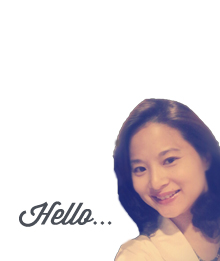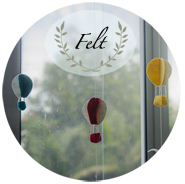My experience with 2 Pediatric Opthamologists recently with K’s eye condition have shown me that not all Opthamologists are equal. By this statement, I am not referring to their qualifications.
M was the first opthamologist that I found on the internet, highly recommended by people I don’t know. While F was the second opthamologist that I also found on the internet, which was recommended by a friend J. Her recommendation came very timely when hb and I were confused and unsure of M’s diagnosis of K’s condition. (Thanks J for sharing your experience and recommendation, it was truly God-sent!)
So here’s what I learnt from our experience thus far :

- When to consult an optomologist?
– When your child’s left/right eye is rolling into a squint uncontrollably and he/she is complaining of blurred vision (which was what happened to K the evening before we saw M)
– When you notice that your child may be turning his head to the left or right, instead of facing his face front when watching TV, drawing or reading
– Frequent rubbing of eyes and squinting
– A child who used to be a premature or low weight baby
– If your child is below 6 years of age. Eye conditions can be hard to determine by an optician, especially if the problem is beyond short-sightedness.

- Don’t trust what forums say (Especially when it is an Expat forum, and you are not an Expat)
I settled on M after I did a search online and ended up on an Expat forum, Incidentally F was also mentioned in the same forum, but in my anxiousness decided on M. When I found the clinic’s details online, I assumed that it must be good, after looking through the specialist doctor’s qualifications, experience and the location of the clinic. This decision was influenced by my experience with a very competent dermatologist in the same building.
Incidentally, M’s name is also recommended in a local motherhood forum with a thread discussion about some moms with kids with eye conditions.
So regardless of the type of forum, don’t trust what you read in forums. Make sure you do your necessary research and go with your instinct.

- Be cautious when the premises are too big
The first thing that striked me when I first entered M’s clinic was how big it was, there were 4 testing rooms, 1 big consultation room equivalent to the size of 2 regular bedrooms in a HDB flat floors of seating areas, a display area of frames that was for sale (which I noticed hardly anyone bought frames from M’s clinic, despite spending a combined 7 hours sitting in the clinic for 2 visits).
M’s clinic has an area that has rather decent toys, complete with Lego and a pretend kitchen, good for entertaining kids for some time. But with an average of 3-4 hour wait, kids will eventually get bored with the toys.
F’s clinic on the other hand, is a modest 50% the size of M’s clinic, which is in dire need of new toys for the kids. However F’s clinic gets extra points from me for having the latest copies of Natural Geographic for the parents.
So I digress too much.
Back to the point. M’s clinic is located in a medical centre of a mall, while F’s clinic is in a medical centre of a hospital. This difference in size and location could likely explain the difference of the cost of consultation fees. M’s consultation fees was at $200 vs F’s fees at $80, so I felt quite ripped off by our visits to M’s clinic.
Do be prepared to fork out more for consultation fees, if the doctor is located in a central shopping mall (an atas one at that) and have a huge premise.

- Higher priced does not mean that it is superior
Most people might have the impression that a more expensive doctor will mean that his/her expertise might be better than another which might be priced slightly lower. My experience with the 2 Opthamologists have shown that a higher price ≠ superior service.
A higher price might mean higher overheads, more expensive equipment or simply a more business minded doctor. The more business minded a doctor could also mean that he/she will take less effort and care with each patient he/she comes into contact with.

- Be even more cautious when the doctor will not do any tests
M’s clinic was bustling with patients and he had almost 7 more Optometrists and Opthalmic Technicians working with him in the clinic. However, M solely depended on the tests done by his staff in the clinic and did not conduct any additional tests himself. His diagnosis was given based on the results of the tests done by his Optometrists.
While F had 2 Optometrists and K underwent 2 repeated set of tests with F’s Optometrist in our visit to her clinic. F conducted a separate set of eye tests for K in her consultation room, then demonstrated and explained how the treatment will work to address his eye condition.
Having the doctor ascertain his eye condition with her own tests gave us the confidence we needed in her diagnosis. Read here for a more detailed account of our experience with both Opthamologists.

- Always seek a second opinion
Despite ending up with the same diagnosis and treatment from 2 different doctors, hb and I were able to understand alot more about K’s eye condition from two different perspectives. Would it have been possible to have saved the money spent on our visits to M? Probably not.
Specialists or doctors are not created equal. The care and effort that they take for their patients will make the difference. And when it comes to our children’s health and well-being, I rather err on the side of being overly cautious.
Do you seek a second opinion when consulting specialists for yourself or for your child? Or do you go with the treatment that is given by that one doctor whom you consult?


























